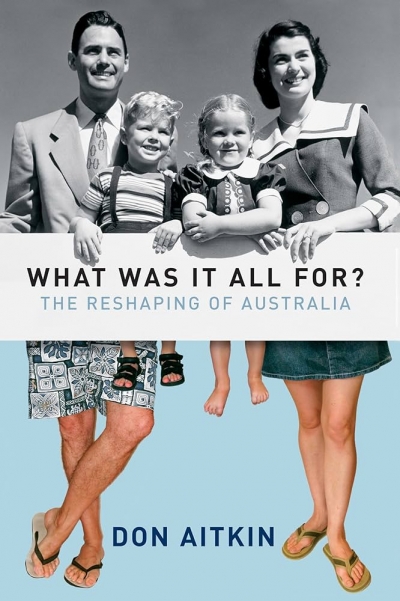Review
What Was It All For? by Don Aitken & Australia Fair by Hugh Stretton
by Dennis Altman •
Eyewitness: Australians write from the front-line by Garrie Hutchinson
by Martin Ball •
Australian Dictionary of Biography: Supplement, 1580–1980 by Christopher Cunneen
by Paul Brunton •
Australia Imagined: Views from the British periodical press, 1800–1900 edited by Judith Johnston and Monica Anderson
by David Carter •
Subterranean Radio Songs by Joel Deane & Suburban Anatomy by Penelope Layland
by John Jenkins •
Noeline by Noeline Brown & Much Love, Jac X by Jacki Weaver
by Richard Johnstone •










